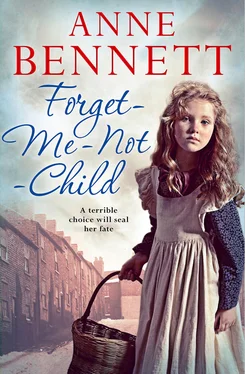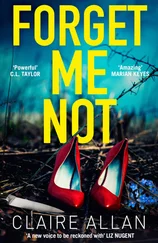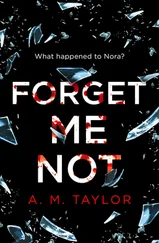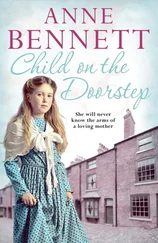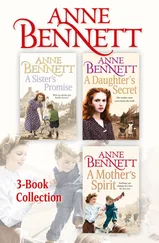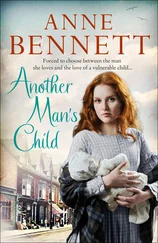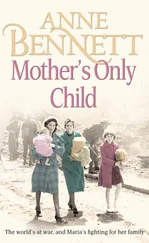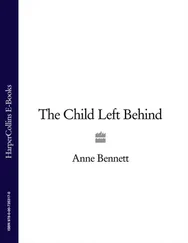After Mass, Norah introduced them to the priest, Father Brannigan, and he was as Irish as they were. Mary’s stomach was growling embarrassingly with hunger and she hoped he couldn’t hear it. She also hoped meeting him wouldn’t take long so she could go home and eat something, but she knew it was important to be friendly with the priest, especially if you wanted a school place for your children. Matt understood that as well as she did and they answered all the questions the priest asked as patiently as possible.
It might have done some good though, because when he heard the two families were living in a cramped back-to-back house with the older boys farmed out somewhere else, he said he’d keep his ear to the ground for them.
‘Well telling the priest your circumstances can’t do any harm anyway,’ Norah said. ‘Priests often get to know things before others.’
‘No harm at all,’ Mary agreed. ‘Glad he didn’t go on too long though or I might have started on the chair leg. Just at the moment my stomach thinks my throat’s been cut.’
It was amazing how life slipped into a pattern, so that living with the Dochertys and eating in shifts became the norm. Gerry and Barry were accepted into St Catherine’s School and went there every day with all the Docherty children and Angela was on the waiting list for the following year when she would be five. Better still, Stan Bishop said he could get Sean into the apprentice scheme to be a toolmaker and Gerry could join him in two years’ time, and he could find a labouring job for Matt the same as Mick, so that by the beginning of June the two men and the boy Sean were soon setting off to work together.
Sadly, Stan could find nothing for the two older boys who were too old for the apprentice scheme, which had to be started at fourteen, and there was no job for them in the foundry. They were disappointed but not worried. It wasn’t like living in rural Donegal. Industrial Birmingham was dubbed the city of one thousand trades and just one job in any trade under the sun would suit Finbarr and Colm down to the ground.
So they did the round of the factories as Stan advised, beginning in Deritend because it was nearest to the city centre and moving out to Aston where the foundry was. They started with such high hopes that surely they would be taken on somewhere soon. ‘The trick,’ Stan said, ‘is to have plenty of strings to your bow. Don’t go to the same factory every day because they’ll just get fed up with you but don’t leave it so long that they’ve forgotten who you are if they have given you any work before. And if you’re doing no good at the factories go down to the railway station and offer to carry luggage. It’s nearly summer and posh folk go away and might be glad of a hand and porters are few and far between. Or,’ he added, ‘go to the canal and ask if they want any help operating the locks or legging the boats through the tunnels.’
‘What’s that mean, “legging through the tunnel”?’
‘You’ll find out soon enough if they ask you to do it,’ Stan said with a smile. ‘Just keep going and something will turn up I’m sure.’
They kept going, there was nothing else to do, but sometimes they brought so little home. Everything they made they gave to their mother but sometimes it was very little and sometimes nothing at all. They felt bad about it, but Mary never said a word, as she knew they were trying their best, and while they were living with the Dochertys money went further, for they shared the rent and the money for food and coal. But she knew it might be a different story if ever they were to move into their own place.
However, that seemed as far away as jobs for her sons, but life went on regardless. Barry did make his First Holy Communion with the others in his class, and not long after it was the school holidays and they had a brilliant summer playing in the streets with the other children. Mary wasn’t really happy with it, but there was nowhere else for them to play. Anyway all the other mothers seemed not to mind their children playing in the streets, but she was anxious something might happen to Angela. ‘You see to her, Barry,’ she said.
‘I will,’ Barry said. ‘But she can’t stay on her own in the house. It isn’t fair. Let her play with the others and I’ll see nothing happens to her.’
‘Don’t know what you’re so worried about,’ Norah said. ‘That lad of yours will hardly let the wind blow on Angela.’
‘I know,’ Mary said. ‘He’s been like that since Angela first came into the house, as if he thought it was his responsibility to look after her. He’s a good lad is Barry and Angela adores him.’
‘He’s going to make a good father when the time comes I’d say,’ Norah said.
‘Aye. Please God,’ Mary said.
Angela thought it was great to be surrounded by friends as soon as she stepped into the street. She had been a bit isolated at the farm. Funny that she never realized that before, but having plenty of friends was another thing she decided she liked about living in Birmingham.
Christmas celebrated by two families in the confines of one cramped back-to-back house meant there was no room at all, but plenty of fun and laughter. There was food enough, for the women had pooled resources and bought what they could, but there was little in the way of presents for there was no spare money. Many of the boots, already cobbled as they were, had to be soled and heeled and Mary took up knitting again and taught Norah. The wool they got from buying old cheap woollen garments at the Rag Market to unravel and knit up again so that the families could have warmer clothes for winter.
January proved bitterly cold. Day after day snow fell from a leaden grey sky and froze overnight, so in the morning there was frost formed on the inside of windows in those draughty houses. Icicles hung from the sills, ice scrunched underfoot and ungloved fingers throbbed with cold.
Life was harder still for Finbarr and Colm toiling around the city in those harsh conditions to try and find a job of any sort to earn a few pennies to take home. So many factory doors were closed in their faces and when the cold eventually drove them home they would huddle over the fire to still their shivering bones and feel like abject failures. No one could help and neither of them knew what they were going to do to help ease the situation for the family.
Slowly the days began to get slightly warmer as Easter approached. Angela would be going to school in the new term and she was so excited. She was just turned five when she walked alongside Mary for her first full day at school on April 15th. She was so full of beans it was like they were jumping around inside her. At the school she was surrounded by other boys and girls all starting together and they regarded each other shyly. When their mothers had gone their teacher, Miss Conway, took them into the classroom, which she said would be their classroom, and told them where to sit.
Angela was almost speechless with delight when she realized she had a desk and chair all to herself. After living with the Dochertys for months, she was used to sharing everything. She looked around and noticed what a lot of desks there were in the room, which was large with brown wooden walls and very high windows with small panes. There were some pictures, one with numbers on it, one with letters, and a map above the blackboard that stood in front of the high teacher’s desk.
Another little girl was assigned the desk next to Angela and she turned to look at her, envying the pinafore she wore covering her dress. In fact most of the girls wore pinafores but her Mammy said funds didn’t run to pinafores and she knew better than to make a fuss over something like that. The girl had straight black hair that fell to her shoulders and dark brown eyes, but her lips looked a bit wobbly as if she might be about to cry and her face looked as if she was worried about something, so Angela smiled at her and the little girl gasped. What the little girl thought was that she’d never seen anyone so beautiful with the golden curls and the deep blue eyes and pretty little mouth and nose. Spring sunshine shafted through the tiny windows at that moment and it was like a halo around Angela’s head. ‘Oh,’ said the little girl with awe. ‘You look like an angel.’
Читать дальше
